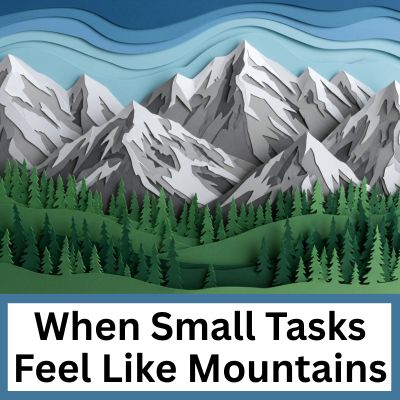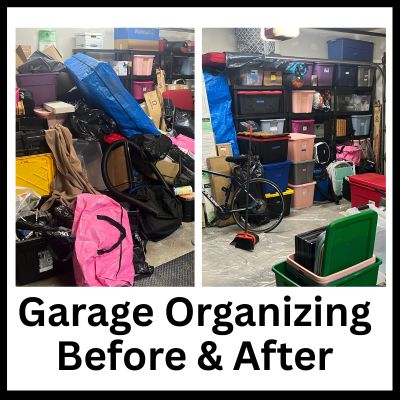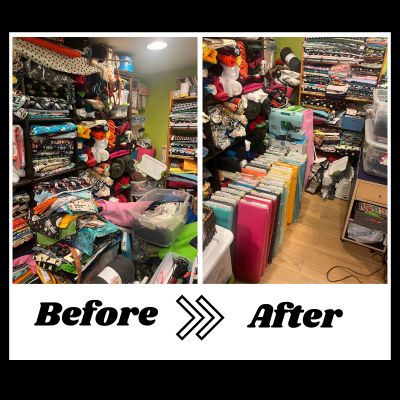Optimizing Circuits for Organization
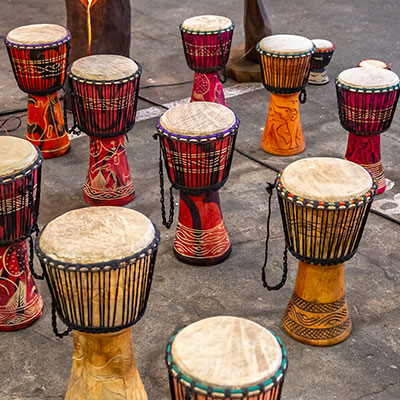
I have a deep love for reggae music, and have wanted to learn to play some sort of hand drum since I first heard Burning Spear’s “Wadada” almost 25 years ago. Wadada is the Amharic word for love. Amharic is the official language of Ethiopia, which many Rastafari consider to be Zion, a place of peace, freedom, and love. Opposite to Zion is Babylon, a place of oppression, materialistic, and evil. I mention this because it is the main theme of Rastafari music, and a theme plagues many humans, especially when it comes to organization. A home that is organized feels peaceful, free and loving. A home that is disorganized feels oppressive, materialistic, and at it’s extreme, can also feel evil. Tune in to Burning Spear’s Wadada here.
I turned 40 in February, 2021, and my birthday present to myself was an African drum (a Djembe) and drum lessons. I found a fabulous teacher, Bob Howell. We meet weekly for outdoor lessons in Seattle’s Fremont neighborhood. Bob is in his 70s and not only does he have an intense love for playing drums, well over 10,000 hours of experience (making him an expert), he is truly a gifted teacher. I have even been able to transfer many of the lessons I learn from Bob to my home organizing clients. In addition to taking lessons from Bob, I’ve also found a talented Rastafari drum teacher, Scott Davis, to teach me how to play one of the Nyabinghi drums, the Kette, which is a Jamaica drum. Scott lives in Northern California, so we meet virtually. The life lessons that I’ve learned from these two teachers have been invaluable.
The act of playing an instrument does wonders for your brain circuitry. During my first conversation with Bob, he told me that as soon as I started playing, the stresses of the news, Covid, and other noise from the outside world would start to melt away as I tuned more in to playing the drum. He was absolutely right. I’ve found that instead of scrolling through the news, worrying about the Pandemic and all it’s related fallout, or tuning in to someone else’s drama, I would choose to either practice my drum or listen to music that supported what I was learning. Even though I consider myself to be an organized and health conscious person, I can see my choices to support my organization and healthy lifestyle have improved even more… without me even having to think about it!
During my first lesson with Bob, I asked him how much I should practice. He told me to practice for at least 3 minutes per day. Only 3 minutes?? He told me to do 3 minutes of focused practice. This is where you practice to the point of making mistakes that are just within your reach. When you practice at this intensity, you are building myelin in your brain. When you can hover in that zone of difficulty- reaching for skills that are just out of your grasp, but not too hard (and not too easy), that’s where you’ll be the most efficient with learning and retention. Obviously I end up practicing far more than 3 minutes per day, but I like to know that even if I can only practice for 3 minutes, that’s good enough. Myelin is what wraps the circuits in your brain. It can’t be unwrapped. So if you want to create a new habit, you need to create a new circuit. When you increase your frequency activating that new circuit, it will soon become automatic.
Here are some takeaways that I’ve learned through drumming that can be applied to organizing:
- When you try hard things that you can barely do, your skill circuits get faster and more fluent. To apply this to organizing, think about something that is a challenge for you to do. It could be the duration of focus on a photo organizing project, the frequency with how often you clear off your desk, or even just diving into an area of your home that you haven’t entered for a long time. Create challenges for yourself where you’re reaching, falling short, and reaching again. Seek out a particular struggle and find the sweet spot.
- Myelin wraps, but it doesn’t unwrap. To create a new habit, you must create a new circuit. Repetition is what will hone the circuit. This is where the daily 3 minute practice comes into play the best. When you’re trying to build a habit, it’s far better to do something for a shorter time more frequently than to do something for a longer stretch less frequently. 3 minutes is a great minimum amount of time. You may decide to keep organizing for longer, but if you really don’t feel like organizing, if you can JUST do 3 minutes, you will be doing wonders for insulating the circuitry that will help that habit become automatic.
- Unconscious mechanisms govern our choices, motivations and goals. Be clear on what your “why” is for getting organized, AND what your unconscious “why” is for NOT getting organized. Be really honest about yourself with what the benefits are for you to stay disorganized. Does it help you feel safe? Does it help you feel like you belong? Do you feel loved when you get attention for being disorganized? Is your identity linked to being disorganized?
- Be mindful of the praise you use for yourself. When using positive reinforcement, instead of telling yourself (or someone else) how you’re good you are at organizing, affirm the struggle. Try saying something like, “Good job for putting all that hard work into getting your papers organized. I know what a challenge that can be!”
- Consider the concept of “Kaizen”, the Japanese word for continual and incremental improvement. Look for small changes that will add up to have an eventual positive trajectory to your organizational habits. It may be something as small as putting a recycling can by the front door, or using a labeled container to group like items. And of course, frequency and time can be applied here. 3 minutes x 365 days= 1095 minutes of organizing per year. That’s over 18 hours. And that’s just the minimum!
- When you’re trying to up level your organizational skills, you may want to consider creating small challenges that aren’t directly related to organizing. This will help you feel more confident to be able to tackle your organizational projects. A lot of times a physical fitness challenge can do the trick, just as long as you’re not overdoing it (metaphorically “running” away from your problems).
- Learning to play a musical instrument is another way to organize the circuits in your brain to be able to tune in to yourself, and to tune into new frequencies (higher vibes) that will allow you to slip in to a more organized environment with less effort.
- Back to my reggae references, to “Chant Down Babylon” will undoubtedly help calm your “critter” brain, the part of your brain that is responsible for your fight/flight/freeze mechanisms. Using this crowding out method will help strengthen the parts of your brain that will help you stay calm, positive, and be able to concentrate on your healthy goals.
- And lastly, for anyone who’s seen the beautiful movie “Australia”, playing a musical instrument (or singing) can be a way to draw people and experiences to you that will aid with your forward progress.
- To learn more about myelin, check out the book The Talent Code by Daniel Coyle.
There are so many more similarities between the skills I’ve learned through drumming that can be applied to organizing. Timing, body awareness, and the way two rhythms lock together are a few of the other lessons that I’m excited to share in future blog posts.
If you’re a musician, what concepts have you learned musically that can be applied to home organizing?
Please let us know in the comments!
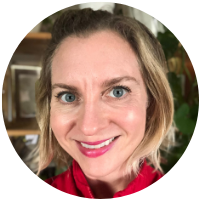
By Jean Prominski, Certified Professional Organizer
Download my free 5 week journal The Seattle Sparkle Method to Get Organized and Stay Organized
Sign up for my free 4 Day Color to Declutter Challenge.
Become part of a like-minded community by joining my Facebook Group, Declutter and Organize with Seattle Sparkle.
Ready to book a consultation? Complete this form.
For artwork to energize your home, order through jeanprominski.com or on Etsy.


